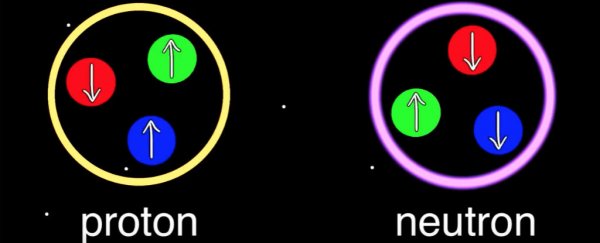You've probably heard countless renditions of how the Universe and everything in it came to be, but you haven't heard it like YouTuber Bill Wurtz tells it. It's hard to look away, I can't explain it, so you'll just have to watch it and appreciate how delightfully bananas the whole thing is.
After some scary realness about the nature of nothingness in the Universe - and an uncomfortably long radio silence that forced me to peer into my own soul - Wurtz's video gives us the birth of the Universe.
Soon enough, quarks - the smallest building blocks of matter (that we know about) start pairing up into the first ever protons and neutrons, and eventually these form hydrogen and helium.
Hundreds of millions of years later - and a whole lot of gravity - and we get our first stars, and we start filling out the periodic table. Stars start dying, and we get even more new elements.
And did someone say crazy space dust? Even crazier space dust?
Suddenly, planets are born, including Earth, but it's a horrible place and you don't want to go there.
Finally, water is delivered by comets (maybe), and once the oceans are deep and nutrient-rich enough, we get the first microscopic organisms. (Although Charles Darwin has something to say about that hypothesis.)
Somehow, we get from DNA replication to photosynthesis and strange Cambrian era water bugs, and eventually, there's enough reason for those marine creatures to start venturing onto land, about 375 million years ago.
We soon get dinosaurs, and then mammals, and primates are learning how to grasp things and walk, and by 3 million years ago, they can walk and use tools.
Congratulations - you've made it to humans, and now you get to hear Wurtz explain the entire history of humanity to you in 15 minutes.
That sounds like a long time, but seriously, it's the end of the week, and you probably need the distraction.
And when you're done watching that video up above, relive the glory of Bill Wurtz's History of Japan below:
Just try not to burst into song about the Sun being a deadly laser.
